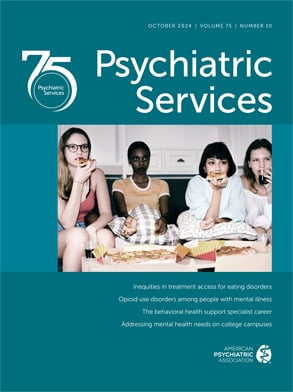Headline 1: Between 1969 and 1998, the year-end residential population of state and county psychiatric hospitals decreased by 84 percent, from 359,969 to 56,955. During this period, the year-end census of psychiatric inpatients at Veterans Affairs medical centers decreased by 79 percent, from 51,696 to 10,822; the census in general hospital psychiatric units increased by 108 percent, from 17,808 to 37,002; and the census in private psychiatric hospitals increased by 96 percent, from 10,963 to 21,478. These figures represent a net loss of 324,119 patient slots, or a 72 percent decrease, over 30 years.
Headline 2: Jails and prisons house an ever-burgeoning population of prisoners with mental illnesses. In 1999 a total of 16 percent of state prison inmates, 7 percent of federal inmates, and 16 percent of persons in local jails acknowledged having a mental illness or an overnight stay in a psychiatric hospital.
Old news: There is a link between headlines 1 and 2. L. S. Penrose demonstrated in 1939 that there is a "definite incompatibility between the development of mental health services and the need for accommodation of prisons."
Solution: Medicaid everywhere. Suppose that individuals eligible for Medicaid were covered for inpatient services in institutions for mental diseases, that is, state and private hospitals and community residences of more than 16 beds. Suppose that persons eligible for Medicaid were covered for inpatient services in jails and prisons. Suppose that felons were covered for outpatient services delivered in prison. And suppose that the Center for Medicare and Medicaid Services (CMS) set the same standards for treatment in all settings, conducted site visits and retrospective chart reviews, and decertified programs or denied payment when standards were not met.
States would have no fiscal incentives to duplicate services in jails and prisons. From a simple cost-benefit perspective, developing hospital- and community-based programs for those whose needs are predominantly for treatment and developing jails and prisons for those whose needs are predominantly for incarceration would be the only sensible thing to do. This change would not necessarily increase cost shifting from states to the federal coffers. CMS, in consultation with governors, could adjust each state's federal financial participation on the basis of historical, reasonable, and optimal costs so that the federal and state overall costs could shift in either direction, or remain the same.
Thus hospitals, community programs, and jails and prisons could perform the functions that each was designed to perform.

